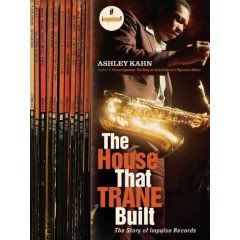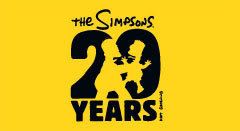It happens here every year or so here in the land of pixie dust and prosecution we call Philadelphia.
Like most large cities, we have a local magazine dedicated to regional issues. And once in a great while, I’ll find myself at a counter waiting to be rung up and I’ll notice the latest issue of said mag, which will be emblazoned with the headline:
Next Year Is Our Year: Philadelphia’s Incredible Comeback!And I’ll smile to myself, quietly.
Because anyone truly born and raised in this area will immediately recognize it for the charade it is, and we are too polite to laugh out loud at it.
It’s a game we’ve been playing for decades: pretending that Philadelphia has gotten a bum rap. Believing that if we’d only managed to get the right breaks, we’d have quickly proven ourselves the equal of any other thriving East Coast Metropolis.
The truth of the matter,
as I’ve said before, is that if they offered free hotel rooms to tourists, made the Schuykill run with Scotch, and paved the streets with gold, we would find a way to screw it up.
It’s what we do.
Which is why the events of recent days have been so delightful.
As you may know, one of the biggest stories to ever come out of Philadelphia recently broke and thrust our city not only into the national spotlight, but became a matter of debate around the world.
It’s the most publicity we’ve seen in years and it absolutely couldn’t be more Philadelphian.
66-year old Joey Vento, the owner and operator of Geno’s Steaks, recently became the focus of media attention when someone noticed a new sign he’d put on display. It read, simply:
This Is America: When Ordering ‘Speak English’This was just Joey’s way of welcoming the recent influx of immigrants to the South Philadelphia area.
Joey is that part of the Philadelphia psyche that will never allow the glossy magazine’s dream to come true. Whenever a headline appears about the city’s for-sure-this-time revitalization, it triggers something in our Joey Ventos and they’re off like a flash to remind the world that this city has an ugly side.
Namely, every side.
The next thing you know, Joey Vento was everywhere. Not merely on the local news, either: Joey was holding forth about “dese people” on
Good Morning America as if he were Paulie Walnuts in a roadshow version of
The Sopranos, granting interviews to international journalists who’d camped out in order to catch any further pearls of wisdom, and soon becoming the most heatedly debated topic on countless internet message boards.
Most of these posts ran something along the lines of “WE’RE WITH YA JOEY!!! STAY STRONG!!!” or “IOWA LOVES JOEY!!! NEXT TIME I’M IN PHILLY I’LL BE AT GENO’S!!!”
Soon the media told us more about Joey Vento than we ever could have possibly wanted to know. For instance:
With ‘Geno's Steaks’ tattooed on his arm, Vento is used to publicizing things, especially what's on his mind. ‘Speak English’ signs also poster his Hummer. He has driven through South Philadelphia blaring through the SUV's P.A. system denunciations of neighborhood business owners who hire illegal immigrants.Then there’s the confederate flag on his motorcycle (and tattooed on his arm). And the t-shirts Geno’s staffers wear that claim that Mumia Abu-Jamal belongs “six feet closer to hell.”
And the fact that he still sells (sigh) “freedom fries.”
Possessor of a ninth-grade education, the vivacious Mr. Vento has a colorful backstory as well.
His father, James “Jimmy Steaks” Vento, was convicted of contracting a murder when he sought revenge against someone who revealed that his steaks contained horsemeat.
As for his brother, Steven "Steakie" Vento (I swear I’m not making this up), he was a convicted drug trafficker and mob associate.
You can’t buy this kind of publicity.
So when the Tony Awards aired not long afterwards and the commercial breaks were filled with spots for our latest tourism campaign,
Philly’s More Fun When You Sleep Over, you had to wonder if they’d been scheduled to run before
l’affaire Vento broke, or if they’d been rushed to air in order to convince any viewers considering a trip to Broadway that nearby Philadelphia had more to offer than freedom fries and immigrant bashing.
The spots themselves showed a man in pajamas in various locations around the city describing our tempting tourist attractions.
“The food! The shopping!” he’d exclaim, as a group of dancers brandished any number of packages as if they’d just finished a shopping spree on Rodeo Drive. Now I’ll admit we have some fine restaurants, but the shopping?
I can’t imagine what we have to offer in the way of shopping unless you’re really,
really into convenience stores.
But that’s all part of Philadelphia’s endless
opera buffa and our unquenchable determination to make any silk purse that comes to hand resemble a sow’s ear. The fog of failure that hangs over the city seeps into every true Philadelphian’s bones, until it’s a part of their basic metabolism. Which is why any attempt to portray ourselves as winners or successes always appears to be archly comic.
We refuse to win. We live to lose.
And a year from now, when the magazine at the counter proudly proclaims:
Philadelphia! The Year We Break Out!Maybe, like me, you’ll reflect silently on the profound ability of human nature to deceive itself. And you’ll decide you wouldn’t have it any other way.


















